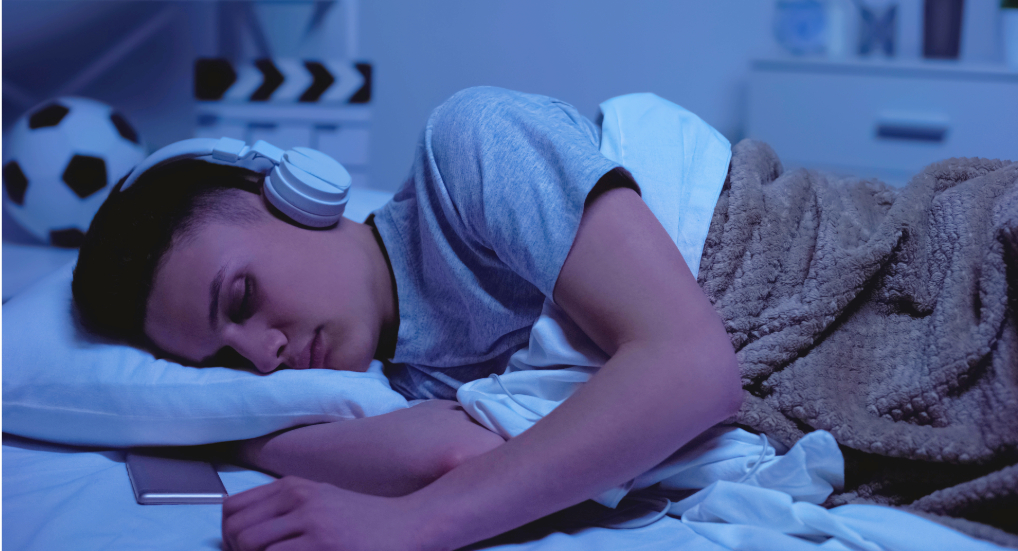- In Stock with Fast, Nationwide Delivery
- All Pine Beds Heavy Duty, Can be Used by Adults
- All Beds In Stock With Fast Delivery
- Buy Direct, No Middleman or Cheap Imports here
Heavy Duty Pine Bunk Beds and Bed Frames in Stock, Made in the UK

As a parent, you’ve watched your child grow from energetic toddler to a seemingly lethargic teenager. It’s not just their attitude that’s changed – their sleep patterns have too! At weekends your teenager snoozes through the alarm until noon, whilst most nights they’re wired till the early hours. It can be difficult to know if they’re getting too much sleep, not enough, or just on an odd schedule.
Adolescence brings more than just mood swings. Hormones and brain development trigger significant changes in your teen’s sleep needs:
At Strictly Beds & Bunks, we’ve been helping parents create the perfect sleep environments for children and teens for over two decades. We understand how important restful sleep is for growing minds and bodies. In this blog, we’ll take a look at the causes of changing sleep patterns in adolescents and offer sleep tips for teenagers to help concerned parents support their growing children through this phase in their lives.
Studies show that an average of 9 hours of sleep is ideal for teenagers’ mental health and well-being. The National Sleep Foundation makes the following recommendations, showing a decrease in sleep needs as adolescence progresses:
Understanding what’s happening in your teenager’s brain and body goes a long way in explaining those strange sleep habits. While some changes are unavoidable, you can be a powerful source of support in helping them navigate this phase. One of the best ways to do this is by establishing consistent sleep routines.
Our sleep tips for teenagers are designed to help guide your teen toward healthier sleep habits:
It takes time to form new routines. Be patient, understanding, and focus on working with your teen.
As your teenager enters puberty, their body clock undergoes a significant change. This means that their most natural bedtime might shift much later, even as late as 11 PM or midnight. While it’s possible to fall asleep a bit earlier than that, it’s incredibly difficult to force sleep much earlier due to those changing internal rhythms. It’s a little bit like jet lag – their brain’s clock is just set to a different time zone.
This biological change means that parents must adjust their expectations. It’s likely that, for the first time, your teenager will be staying up later than you! Negotiating a new bedtime that works for both of you can be really helpful, as forcing your teen to sleep when their body isn’t ready can be counterproductive.
If your teen finds themselves tossing and turning because their body just isn’t ready for sleep, it’s important to have a plan. Lying in bed frustrated and anxious will only make falling asleep harder.
Encourage your teen not to stress about falling asleep instantly. Instead, reassure them that sleep will come eventually. Avoid watching the clock or trying to force themselves to sleep, as this can worsen the anxiety.
If after 20-30 minutes, sleep still seems impossible, suggest getting out of bed and doing something relaxing, like reading or listening to music (although phones should be avoided). Then, after 15-20 minutes, they can try again. This may seem counterintuitive, but it can trick their brain by distracting them, giving natural sleepiness a better chance to kick in.
A supportive mattress and a relaxing sleep environment play a crucial role in promoting quality sleep. As your teenager grows, their comfort needs may change. Here are some things to consider:
Remember, a good night’s sleep is vital for your teenager’s physical and mental health. By understanding the changes their body is undergoing, establishing healthy sleep routines, and creating a comfortable sleep environment, you can help your teen get the rest they need to thrive.
Visit our website to explore our selection of mattresses, beds, and bedroom furniture designed to promote quality sleep for teenagers of all ages or contact us for suggestions.
Sign up for exclusive deals
Receive exclusive voucher codes or product launch details
We won’t bombard you with emails and you can unsubscribe at any time